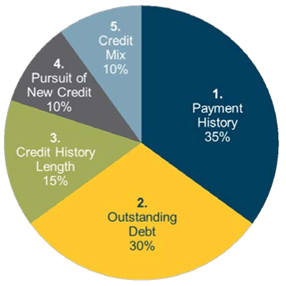Credit 101: What Makes Up a Credit Score
Tagged as: Credit 101


Credit 101: What Makes Up a Credit Score
Checking Accounts
Whether you like dividends, rewards, or just "free," we have the account for you.
Contact Us
We're here when you need us.
Today's Rates
Don't miss out on our competitive rates.
Subscribe to Our Blog
* Required
We appreciate your interest.

Want low rates for purchases, cash advances and balance transfers? Our Visa Platinum card is for you!
